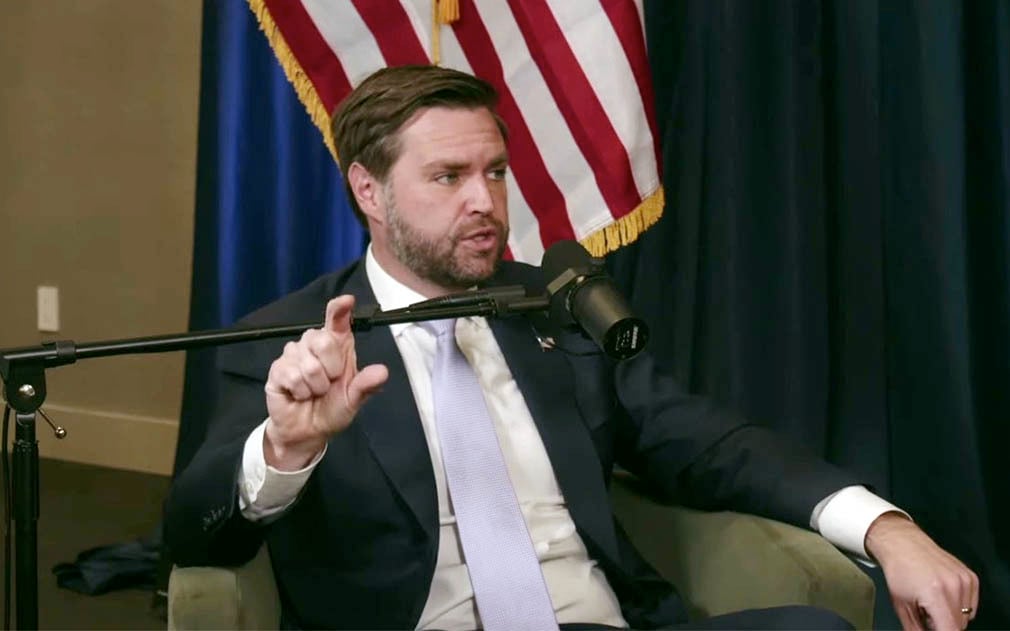Trump Administration Reopens Talks with Iran Post Nuclear Strikes
On Sunday, the Trump administration exhibited readiness to reopen negotiations with Iran, in the wake of sudden attacks on three of the country’s nuclear locations. Top U.S. officials are in the process of evaluating Iran’s nuclear intentions and considering the likelihood of any reciprocal response threatening American interests. Coordinated statements from the Vice President, the head of the Pentagon, the prime military advisor, and the Secretary of State seem to display a belief in their ability to effectively manage any subsequent fallout from this assault, asserting that Iran’s limited military strength would ultimately propel it back to the negotiation table.
The U.S. Defense Secretary, Pete Hegseth, declared in a press briefing that the U.S. isn’t pursuing conflict with Iran. Simultaneously, Vice President JD Vance conveyed that these strikes could serve to foster a possibility for Tehran to re-engage in talks with Washington.
‘Operation Midnight Hammer’, as the tactical offensive was referred to, was carried out successfully without any Iranian resistance, inclusive of decoy measures and strategic deception, as reported by Hegseth and Air Force General Dan Caine, chairman of the Joint Chiefs of Staff.
Hegseth emphasized that the operation wasn’t intended and is not being framed as a step towards changing the regime, while Caine acknowledged achievement of the objective: the obliteration of nuclear sites in Fordo, Natanz, and Isfahan.
Gen. Caine stated that while a comprehensive damage assessment might take some time, preliminary evaluations indicate significant destruction and damage at all three targeted sites.
Vice President Vance expressed confidence in the effectiveness of the operation during a television interview, strongly believing that the American intervention has significantly delayed Iran’s development of nuclear weaponry. He enlightened viewers about the U.S. ‘aggressively negotiating’ with Iran in pursuit of a peaceful settlement.
Highlighting that President Trump made his decision reckoning Iran was not working ‘in good faith’, Vance expressed hope that this action might offer a chance to overhaul the U.S.-Iran relationship and renegotiations, leading to a state where Iran chooses not to menace its neighboring countries or the United States.
Urging Iran to seize this opportunity, Vance pointed out that the U.S. is completely open to change, if Iran showcases readiness for it. Meanwhile, Secretary of State Marco Rubio, while conversing on CBS’s ‘Face the Nation’, mentioned that the U.S. doesn’t currently have any military operations against Iran in the pipeline, barring any potential response to threats to U.S. interests.
In the past, President Trump has threatened other nations but frequently has been seen to retract or not follow through due to his commitment to avoid dragging the U.S. into protracted warfare. Meanwhile, the world grapples with the impacts of the strike, mindful of potential escalation leading to further conflict across the Middle East, following the U.S.’s tactical intervention in the conflict between Israel and Iran.
Israeli airstrikes targeted Iran’s nuclear infrastructure, prompting a reciprocal response from Iran. This ensuing chain of events was a significant factor contributing to the eventual U.S. intervention. U.S. officials encouraged restraint, focusing on the fact that their operation was limited to nuclear sites, however, it’s clear it drew criticism from Iran for breaching its sovereignty and international regulations.
Iran’s Foreign Minister, Abbas Araghchi, held the U.S. to be ‘fully responsible’ for any course of action Iran chooses as a response to these attacks. He cast doubt on the possibility of diplomatic negotiations post these strikes, stating that attacking nuclear facilities crossed a ‘vital red line’.
Global nations, including Russia and China, as well as some from Europe, condemned the military action and appealed for a resumption of peace negotiations. Meanwhile, the United Kingdom has mobilized and relocated military equipment into the eventful region, whereas other European nations have stressed the urgency for dialogue.
The unresolved conflict resulted in a sharp upsurge in oil prices, echoing the inflationary impacts experienced in the aftermath of Russia’s 2022 intrusion into Ukrainian territory. The Pentagon refrained from releasing new specifics regarding Iran’s nuclear potential but maintained confidence in the U.S.’s ability to execute this operation unopposed, given Iran’s weakened air defenses.
Gen. Caine explained that Iranian fighter planes didn’t take to the air during the operation. He also suggested that their surface-to-air missile systems were seemingly blind to U.S.’s presence during the entirety of the mission.

